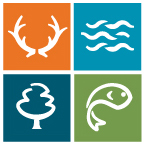There are more than 89 million dogs living in US households, and a dog is an excellent companion for adults and kids alike. It’s great to take your dog for a walk in the wild, where he can experience the wonders of nature. However, problems can ensue when dog ownership is coupled with absolute freedom.
Our much-loved pets can become a severe threat to wildlife due to their inherently predatory nature. When your domestic dogs competes for food in the wild, he will potentially upset the ecological balance. Aside from its deadly impact, leaving pet dogs on their own in a natural habitat can have non lethal impacts as well such as disturbance of other animals, hybridization, and transmission of disease. Here, we offer some tips on how you can help conserve wildlife through responsible ownership:
Spare The Leash, Spoil The Dog
Just like you, your dog needs exercise, but that doesn’t mean a free-for-all. It’s your responsibility to keep your dog under control, for his own safety as much as that of the local wildlife. For example, leaving your dog prancing in the wild can easily lead to contact with a diseased rodent. The onus is on you to check what your dog does around him. The foolproof solution is to keep your dog on a leash. Ensure the collar is not too tight around his neck – you should be able to slide two fingers comfortably under it – and consider a retractable or extended leash to allow your dog to roam comfortably when it is safe to do so.
Make Sure Your Dog is Well Trained
Even if you keep the dog on a leash, accidents happen and he might get loose. Under such circumstances, your dog should be responsive to auditory cues, either if you call or whistle, so that you can get your dog back under control safely and without incident. Some breeds of dog are easier to train than others – for example, Labradors are generally eager to please, while Huskies are famously strong willed and while they understand the command, they tend to decide for themselves whether to obey. But any and every dog can be trained. If you have real difficulties making progress, seek help from a professional dog trainer.
Look For Alternatives
Even if your dog is not actively making a nuisance of itself and upsetting or chasing wildlife, its very presence or any excessive barking can disturb and scare other creatures. Ultimately, it makes sense whenever possible to look for alternative places where you can spend time together with your beloved pet, such as a public playing field or at the beach, where you will not be causing a disturbance to the wildlife.
A dog is a man’s best friend, and man should be nature’s steward. As soon as you step into a wildlife habitat, remember you’re stepping into their territory, not the other way around. You can still have fun with your beloved dog while respecting the ecological balance. Responsible dog ownership means taking into consideration how your beloved pet affects others.
Post contributed by Lucy Wyndham

